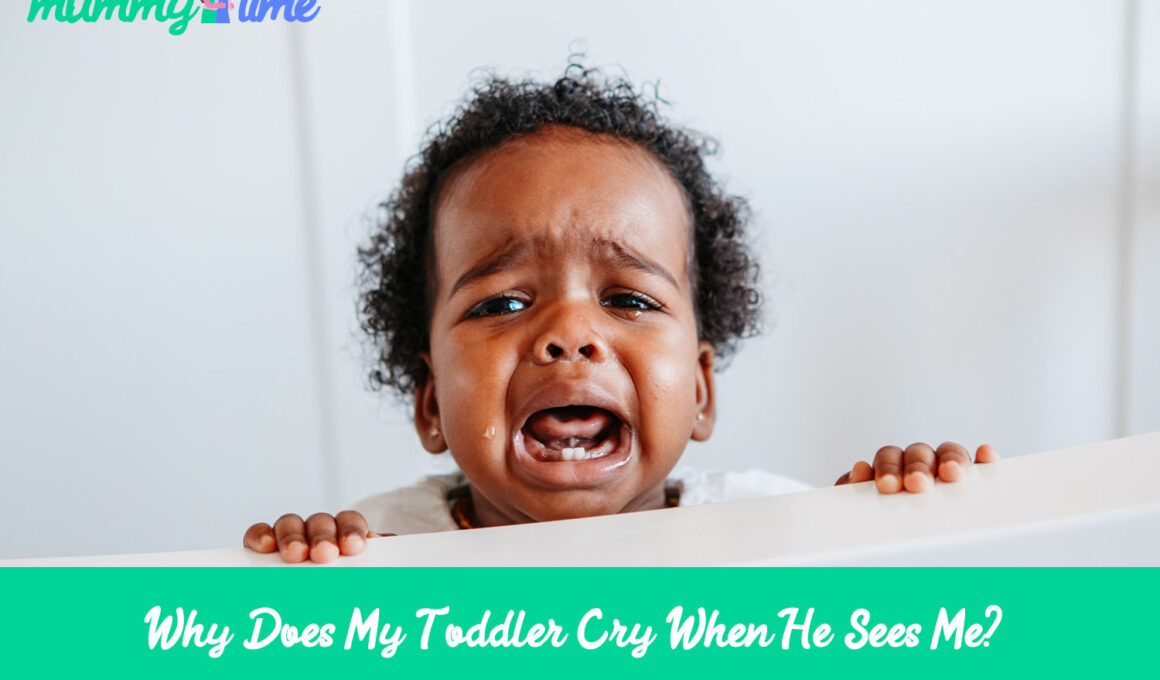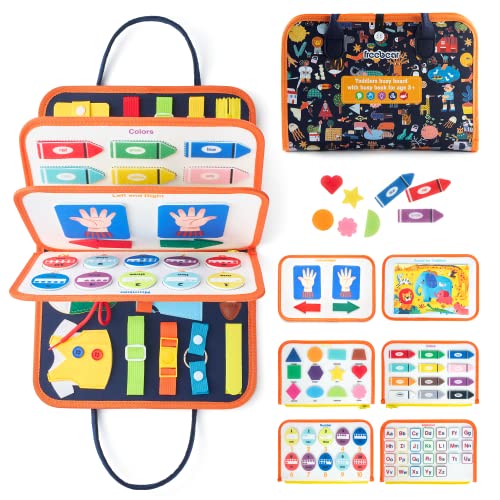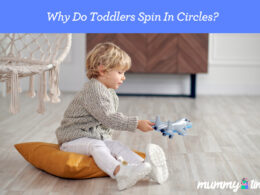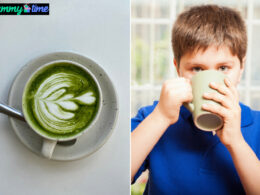In This Article Show
You may be wondering “Why does my toddler cry when he sees me? Does he not like me?”. As a working mom or dad, it’s quite disappointing to hit the road back home with high hopes of an exciting and heartwarming welcome only for your baby to start crying the minute he sees you. You get stressed out wondering if he has forgotten about you within hours of being away from him.
Your toddler crying when they see you could be a result of separation anxiety. This is usually common among toddlers between the ages of 8 months to 2 years and is solely normal as babies their age do not know how to properly express their emotions.
It usually doesn’t matter how long you were away from your baby, it could be 20 minutes or 3 hours, and they will always feel your absence. Your toddler adores you and is already emotionally attached to you, and there is no way they won’t notice you are gone.
But why do you come back home to get the opposite reaction of what you imagined? It still doesn’t make sense. Hold on a while, let’s try to deeply understand this issue and discuss tips on what to do to prevent future occurrences.
NEW: Toddler Pants Falling Down: Here’s What To Do
Why Your Toddler Cries When He or She Sees You
Have this in mind, if you come home to a weeping toddler it is not because he has suddenly forgotten you, or that he’s not happy to see you. It is simply because your baby can not excellently convey his emotions, those downpours could be a result of over-excitement, unbelievable right? Do not be dismayed, your baby still adores you.
Great deals to snatch for your little ones 🎉
Separation anxiety happens to toddlers between the ages of 6 months to 8 months, it’s a natural part of your baby’s growth and they often outgrow it. It can be hard to see your baby cry but you’ll have to help him out by petting and assuring him, and if you are feeling distressed or disappointed try not to let it show. Instead, let your baby know how excited you are to see him and how hard it was for you to be away from him.
We know it’s not encouraging to come back home to a baby throwing tantrums after seeing you, especially when you have been looking forward to seeing their cute faces. Do take it as a sign that your baby loves you so much and is happy to reunite with you again but doesn’t know how to handle the surge of emotions.
How To Deal With Separation Anxiety In Toddlers
If your baby cries when they see you it is usually due to separation anxiety, so you need to understand how to handle it as it can help you both through these situations. The following tips will help you and your baby work through separation anxiety;
1. Practice short separations
One of the best things you can do at this point is to get your baby accustomed to not seeing you around all the time. It could seem a bit odd but it can go a long way. You could start with games like peekaboo, scheduling play dates with kids his age, then you can proceed to drop him off at his granny’s for an hour or two if that’s possible. Practicing being apart will help your baby thrive in his preschool days.
2. Do not sneak out
Sneaking out without saying goodbye to your baby might seem like the easiest thing to do but it doesn’t do any good. It is important to tell your baby goodbye before leaving the house. That way it doesn’t seem like you vanished, as this can boost their anxiety and get them scared that you can disappear at any time without warning. No matter how long you are going to be away, make it a ritual to always say goodbye to your baby.
3. Make fun promises
Tell your toddler about things you guys will do later when you come back so they can be excited and happily wait for your arrival. You can promise to take them out for ice cream or the park or any other fun things you know your toddler would love. More importantly, fulfill these promises to gain your toddler’s trust.
4. Have a goodbye routine
You might assume that your baby is too young to understand a routine, but toddlers are fast learners, they notice if something is often done by you and catch on. It’s not a bad idea to have a goodbye routine, you can have a fun and interesting goodbye pattern exclusive to both of you. This goodbye ritual must be special and unique to just you and your baby.
Frequently Asked Questions
How long does separation anxiety last in toddlers?
Separation anxiety occurs when your baby feels vulnerable around strangers or realizes that their parents or caregivers are not with them. Separation anxiety is most dominant in children between the ages of 10- 18 months, it gets better at the age of 2 and it ends when they turn 3 years.
Why does my baby cry when he sees me?
Babies are still learning how to deal with their emotions, and in most cases, the only way they know how to be expressive is by crying. Due to separation anxiety, your baby might cry when they see you because of how much they have missed you while you were away. Do not worry, your baby still remembers and loves you.
Separation anxiety in babies at night?
Babies having separation anxiety at night could be tiring and exhausting, sometimes even friendly babies get separation anxiety, and they get scared of sleeping alone at night. You will need to calm and soothe them to sleep as their brains haven’t fully evolved yet to help them cope with their fears. However, always keep your check-ins short and boring to encourage them to go back to sleep or take them to sleep in your room.
Conclusion
Coming home to a tearful baby can be heartbreaking especially when you have envisioned seeing a joyful child. Even worse is when they are cool with their caregiver and not with you. Keep in mind that toddlers your child’s age are known to undergo separation anxiety.
Don’t interpret it that they are not happy and excited to see you. It is quite the opposite of what you are thinking, your baby doesn’t know how to convey his emotions, he is extremely happy to see you but the only way to express it is by crying which by the way is normal.
NEW IN:













